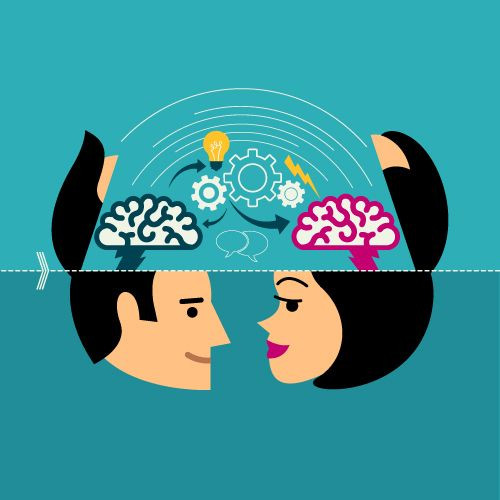Men Are From Mars: Emotional Images Improve Women's Memory, But The Same Can't Be Said For Men

Stereotypically, people tend to believe women are more emotional than men. Researchers from the University of Basel’s Molecular and Cognitive Neurosciences team wanted to know why. So, they peered into the brains of men and women to figure out whether emotion affects them differently. Their findings are published in The Journal of Neuroscience.
Emotion, they found, plays a special role in the way people process memory. When there’s been a traumatic event in someone’s life, even if they’re very young, it is remarkable how well they can recall the details—male or female. But the brain tells a different story. Researchers tested 3,398 people with images and asked each gender to rate how strongly the emotional content affected them.
Women rated the images with a much higher emotional grade than men did, notably when they were negative images. They were then given a memory test, and the heightened emotional stimulation served them well and women to freely recall many images than men could.
"This would suggest that gender-dependent differences in emotional processing and memory are due to different mechanisms," the study’s coauthor Dr. Annette Milnik said in a press release.
Taking a closer look, researchers scanned 696 of the test subjects’ brains with a functional magnetic resonance imaging machine (fMRI) in order to watch their brain view images in action. In the motoric region, where the brain plans and controls, there was more activity in a woman’s brain when she saw an emotional image, than there was when a man saw it.
"This result would support the common belief that women are more emotionally expressive than men," the study’s lead author Dr. Klara Spalek said.
A woman’s ability to remember events or images may also have something to do with the conversational story-like mannerism of her brain. A few months ago, New Zealand researchers published a study on childhood memory recall and found females still had the advantage. They found women remember things faster, more accurately, and in greater detail than men, except these researchers believe it’s for a different reason—storytelling.
Between the ages of two and six, children learn how to form memories, and girls become better at articulating their feelings about a particular event than boys are. The repeat storytelling practices girls use as they grow up engage their brains in a way boys miss out on. Memory isn’t just some sound lyric or smell particle floating around in your brain, but instead a pattern of mental activity. The way women have mastered memory recall through a combination of childhood story time and visual emotional engagement has molded their brains—or is it the other way around? Only more research will tell.
Researchers believe this could help add to a body of research trying to evaluate the different ways men and women process information. Not only could this help in learning how to improve memory recall and spatial recognition, it could also open the door for doctors to better understand why so many neuropsychiatric illnesses are gender specific.
Source: Milnik A, Spalek K, Fastenrath M, Ackermann S, Auschra B, and Coynel D, et al. Sex-Dependent Dissociation between Emotional Appraisal and Memory: A Large-Scale Behavioral and fMRI Study. The Journal of Neuroscience. 2015.
Published by Medicaldaily.com



























